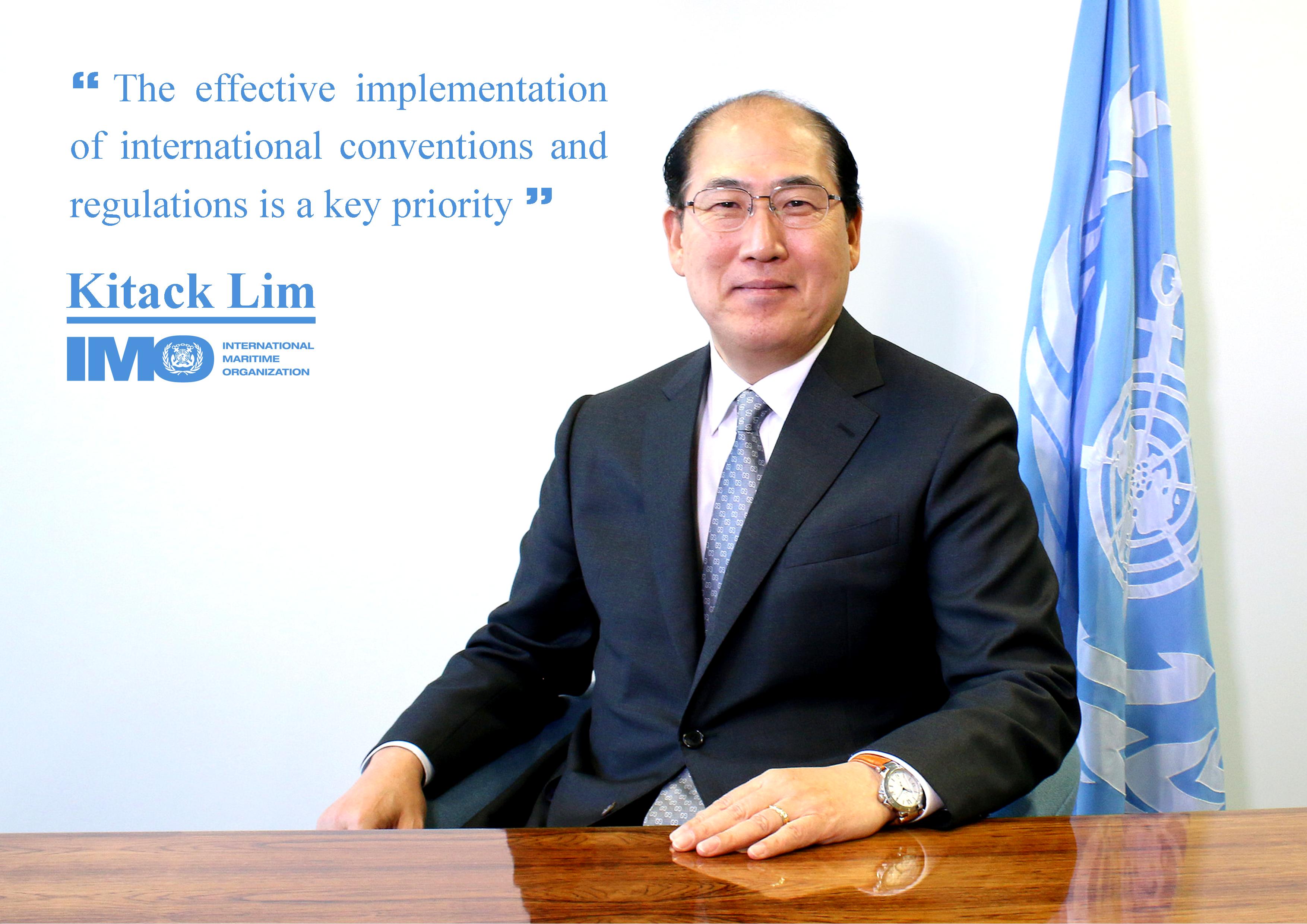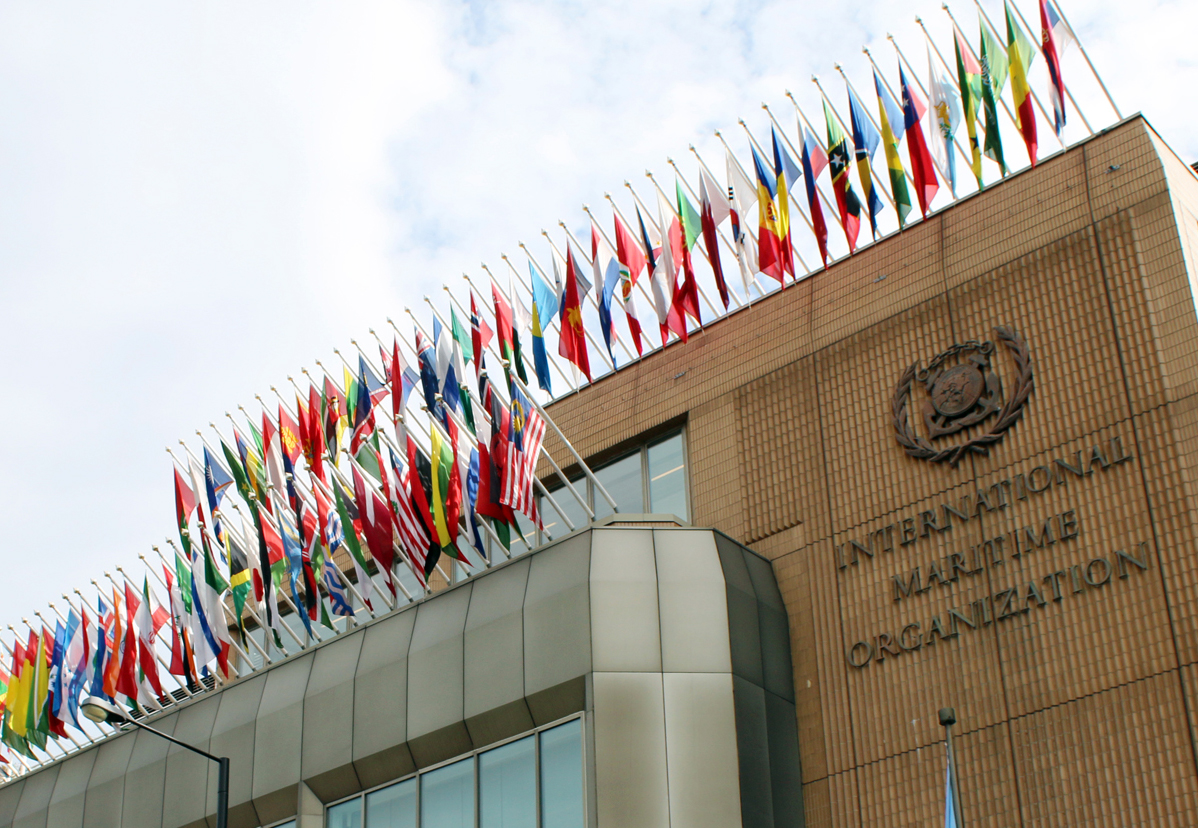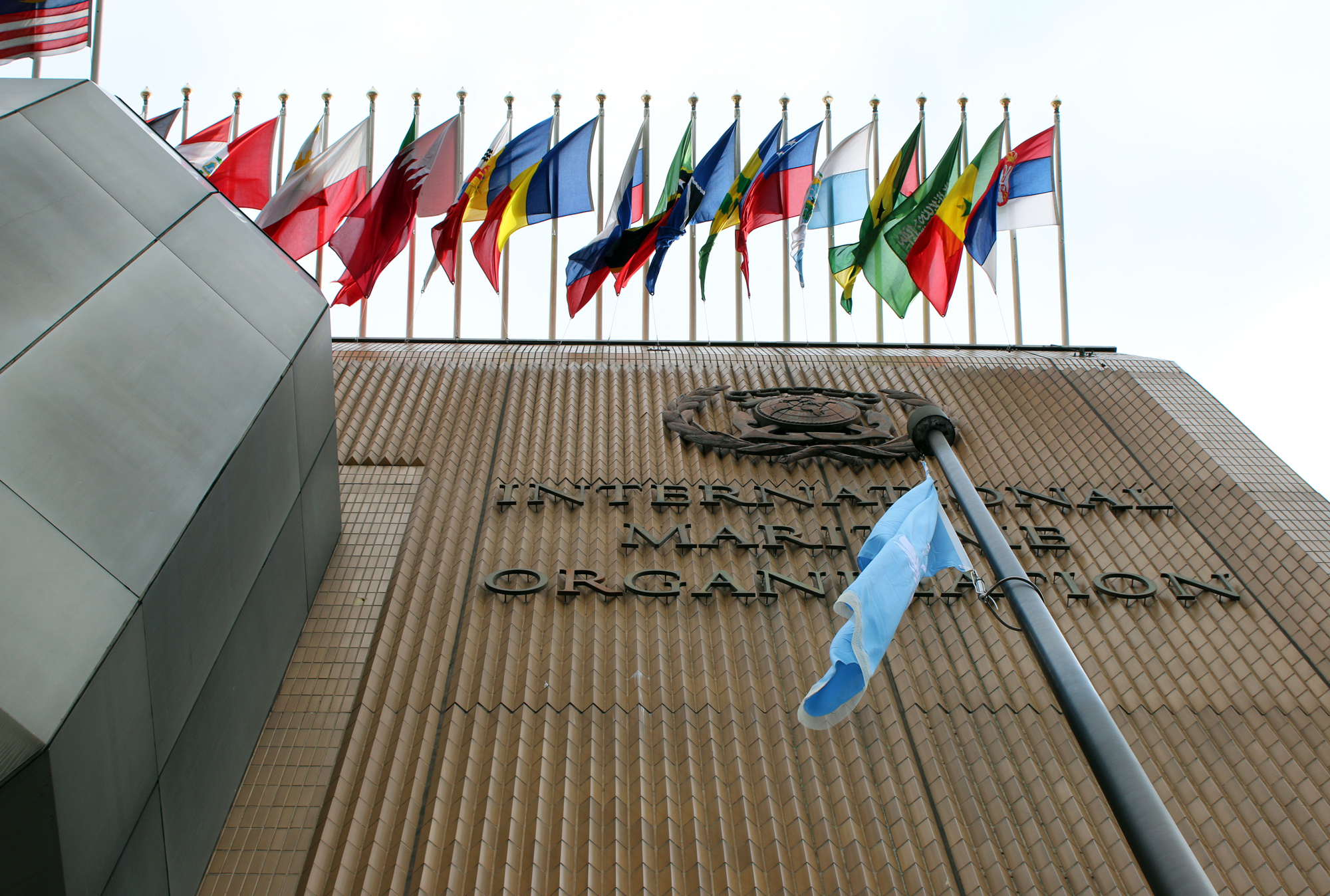May 18 – Gib Shipping Feature – An Interview With Kitack Lim
 By Paul Gonzalez-Morgan
By Paul Gonzalez-Morgan
Kitack Lim was elected Secretary-General of the International Maritime Organisation (IMO) in developing countries by the 114th session of the IMO Council in June 2015 for a four-year period beginning 1 January 2016. The election was endorsed by the IMO's Assembly at its 29th session in November 2015. Mr. Kitack Lim (Republic of Korea) is the eighth elected Secretary-General of the International Maritime Organization.
What are the IMO's main objectives for 2016?
The main objectives this year include the smooth implementation of the mandatory IMO Member State Audit Scheme; further efforts to address greenhouse gas emissions from international shipping; the next steps in the application of goal-based standards for construction of oil tankers and bulk carriers; continued work on passenger ship safety and the implementation of the Ballast Water Management Convention.
Other matters on the regulatory side include the review of the Global Maritime Distress and Safety System, pushing ahead with the e-navigation strategy and managing cyber security threats.
Alongside these, a key objective for this year and beyond is the continued implementation of the hugely important Technical Cooperation Programme which supports capacity building, particularly in Small Island Developing States and Least Developed Countries. This can be seen in the context of a long-term strategy to create conditions for increased employment, prosperity and stability through enhancing the maritime sector and a sustainable 'blue economy' in developing countries.
It is extremely important that we promote the transfer and uptake of maritime experience and expertise so that all Member States can participate effectively in maritime activities. Feedback from the mandatory audits will also contribute to this process.
For me personally, the effective implementation of international conventions and regulations is a key priority. I have talked about a "voyage together", in which my vision is one of strengthened partnerships – between developing and developed countries, between Governments and industry, between IMO Member States and regions.
Another personal objective is to strengthen communication between the maritime industry and the general public and I see IMO acting as a bridge between all these stakeholders. I am keen to raise our visibility not just among those who already know us, but also among those who do not. I want to raise awareness among officials, ministers and decision-makers outside of our regular community, in the interests of joined-up thinking, joined-up planning and collaboration.
How important are new technologies in improving vessel efficiency?
New technologies and innovation are very important tools and can significantly enhance ships' energy efficiency.
IMO has set non-prescriptive regulations for the mandatory Energy Efficiency Design Index (EEDI) for new ships, so that ship designers are free to use imagination, blue-sky thinking and innovative technology to meet the requirements and also achieve the most cost-efficient solutions.
We are also working proactively to encourage technology-transfer in the maritime sector and the focus is on cooperation and collaboration. We want to cement not just north-south technology cooperation, but south-south and south-north technology and information flow as well.
Two major IMO projects are supporting the increased uptake and implementation of energy-efficiency measures for shipping. The first is the GloMEEP project, formally designated "Transforming the Global Maritime Transport Industry towards a Low Carbon Future through Improved Energy Efficiency". IMO is executing this Global Environment Facility (GEF)- funded GloMEEP project in partnership with the United Nations Development Programme (UNDP), following the signing of an agreement between IMO, the GEF and UNDP to allocate US$2.0 million to this two-year partnership project. A number of national workshops involving lead pilot countries have already been held under the project.
The second exciting project is the European Union-funded IMO project to establish a global network of Maritime Technology Cooperation Centres (MTCCs) in developing countries. The aim is to help beneficiary countries limit and reduce greenhouse gas (GHG) emissions from their shipping sectors through technical assistance and capacity building. It will encourage the uptake of innovative energy-efficiency technologies among a large number of users through the widespread dissemination of technical information and know-how and thereby heighten the impact of technology transfer. One of the goals will be to promote the uptake of low-carbon technologies and operations in the maritime sector through the implementation of pilot projects.
Both these projects will provide opportunities to evaluate existing as well as new and emerging technologies. So we might be looking at advanced hull coatings to prevent fouling, novel propulsion and powering systems, "smart ships" incorporating advanced communications and sensor technology into their operation, and so on.
It is an exciting time for shipping, as we look towards building capacity to implement technical and operational measures in developing countries, where shipping is increasingly concentrated. We should strive towards promoting a low-carbon maritime sector, to minimize the adverse impacts of shipping emissions on climate change, ocean acidification and local air quality.

What measures are issued by the IMO to counter piracy?
IMO has responded to maritime security threats, encompassing terrorism as well as criminal and illicit activity such as piracy and armed robbery against ships, in two ways: by adopting and approving regulations and guidance and through capacity building.
Chapter XI-2 of the SOLAS Convention makes mandatory the International Ship and Port Facility Security Code (ISPS Code) and forms the cornerstone of regulatory measures to address maritime security. Ships and port facilities both have to have in place approved security plans which address identified threats.
IMO has been addressing piracy (which is an illegal act committed against a ship on the high seas, under its definition in the United Nations Convention on the Law of the Sea) for several decades. Regional capacity-building has helped address and suppress piracy and armed robbery against ships in the Straits of Malacca and Singapore and more recently off the coast of Somalia, in the Gulf of Aden and in the wider Indian Ocean. Thanks to regional capacity-building efforts by IMO to counter piracy - including the Djibouti Code of Conduct for the western Indian Ocean, efforts by coastal States, navies and the shipping industry through implementing "best management practices" - we have seen a decline in acts of piracy off Somalia. No successful hijack was recorded there in 2015.
However, the alarming increase in acts of murder, kidnapping, hostage-taking and robbery by pirates in the Gulf of Guinea has now become a serious concern, and I welcomed the Presidential Statement issued by the UN Security Council at the beginning of May addressing this subject. IMO is currently implementing a strategy for enhancing maritime security in west and central Africa, in line with the region's maritime security agreements.
The focus is on providing assistance to IMO Member States seeking to develop their own national or regional measures to address the threat of piracy, armed robbery against ships and other illicit maritime activities. IMO is working with States in the region and regional organizations to help develop the maritime sector and the blue economy, underpinned by good maritime security. In addition to countering piracy and armed robbery against ships, States in the region are being encouraged and assisted to develop holistic maritime security strategies that address a range of issues, including search and rescue, marine environment protection, energy-supply security, maritime terrorism, unsafe mixed migration by sea as well as other illicit activities, such as trafficking drugs, weapons and people by sea and illegal fishing.
A comprehensive range of guidance material for shipmasters and Governments to prevent and suppress piracy and armed robbery at sea, investigate offences, and address armed security personnel on board ships has been disseminated by IMO as well as guidance to shipping to address a range of other maritime crimes including drug smuggling, stowaways and fraud ("phantom ships").
What are the current and future challenges for international shipping?
Of course I cannot speak for the shipping industry and it will certainly have its own view on its current and future challenges, but I do believe that shipping is always going to be indispensable to world trade, as we have been highlighting in our World Maritime Day theme for this year - "Shipping: indispensable to the world".
Market conditions dictate the global economy but the historical trajectory of shipping suggests that trade by ship will continue to rise, in the long term. According to the United Nations Conference on Trade and Development (UNCTAD), around 80 per cent of global trade by volume and over 70 per cent of global trade by value are carried by sea and are handled by ports worldwide. These shares are even higher in the case of most developing countries. Without shipping the import and export of goods on the scale necessary to sustain the modern world would not be possible.
From IMO's perspective, I think the challenges for international shipping are to ensure that it remains sustainable for the future, to ensure ships are as safe as possible and with minimal impact on the environment, particularly when it comes to air pollution and reducing greenhouse gas emissions.
Current challenges arising from the regulatory side will include implementing amendments to regulatory instruments that have been adopted to improve the safety of shipping, such as the SOLAS requirements for the verified gross mass of containers entering into force on 1 July 2016.
On the environmental side, the Ballast Water Management Convention will require investment and implementation from the shipping industry, while shipping will need to comply with stricter limits on sulphur emissions globally in the coming years.
But I know from my conversations with the shipping industry representatives who attend IMO meetings as observer delegations that the international shipping industry fully supports the work of IMO and, over the years, the various shipping industry bodies have contributed hugely to enhancing the regulatory regime, providing expert input on everything from ship design, construction, equipment, manning, operation and the eventual end-of-life disposal of ships.
We cannot predict the future but I feel certain that international shipping will be ready to face any forthcoming challenges, alongside the IMO Membership.
What is the IMO's view on LNG being the "energy of the future"?
As an organization, IMO has not adopted a view on LNG specifically but has responded to changes in the industry by ensuring the development of appropriate global standards for new fuels or for alternative methods in order to meet compliance.
As environmental regulations strengthen, such as the air pollution regulations under MARPOL Annex VI, the market will decide how to respond. It will be up to ship operators to decide on which fuel to use or whether to use alternative, equivalent methods (such as scrubbers), so long as these are approved by the flag State as meeting the air pollutant requirements.
At the moment, the number of LNG-fuelled ships is relatively small. An IMO- commissioned study identified some 40 LNG-fuelled merchant ships in operation with a further 40 under construction or undertaking conversion.
The same study notes that the use of LNG is considered to have significant environmental advantages. An LNG-fuelled ship reduces the emissions of NOx by 85% to 90% (using a gas-only engine), and SOx and particles by close to 100% compared to conventional fuel oil. In addition, LNG-fuelled ships may result in a net reduction of GHG emissions.
Recognizing the increasing number of gas-fuelled ships, IMO has developed and adopted the International Code of Safety for Ships using Gases or other Low- flashpoint Fuels (IGF Code), which contains mandatory provisions for the arrangement, installation, control and monitoring of machinery, equipment and systems using low-flashpoint fuels, focusing initially on LNG. It becomes mandatory under amendments to the SOLAS Convention which will enter into force on 1 January 2017.
IMO has also adopted amendments to the International Convention on Standards of Training, Certification and Watchkeeping for Seafarers (STCW), and STCW Code, to include new mandatory minimum requirements for the training and qualifications of masters, officers, ratings and other personnel on ships subject to the IGF Code. These amendments will enter into force on 1 January 2017.
Please describe the importance of training and development in the shipping sector.
Effective standards of training are the bedrock of a safe and secure shipping industry and it is clear that without a quality labour force, motivated, trained and skilled to the appropriate international standards, shipping cannot thrive.
Moreover, personnel within the industry must have sufficient, quality training if they are to be able to implement the many advances that have been made, in terms of safety and environmental impact.
Shipping is highly technical, demanding considerable skill, knowledge and expertise from those who work in it and not everything can be learned on the job. So it is vital that shipping has a global network of specialist education and training establishments to ensure a continuing stream of high-calibre recruits.
And this is not just about seafarers. Maritime education needs broad coverage. Naval architecture, marine engineering, maritime law and many other fields all require specialist training.
IMO's long and wide-ranging involvement in the human element of shipping includes the adoption of the 1978 International Convention on Standards of Training, Certification and Watchkeeping for Seafarers, which has set the international benchmark for seafarer training and education. Compliance with its standards is essential for serving on board ships.
For more news and features, visit: http://www.gibraltar-shipping.com

{fcomment}






